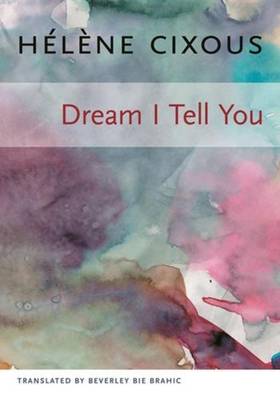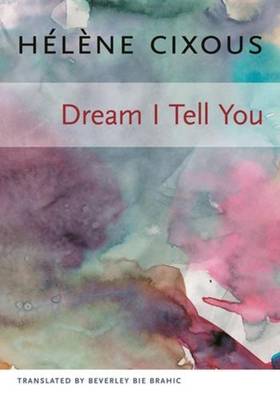
- Afhalen na 1 uur in een winkel met voorraad
- Gratis thuislevering in België vanaf € 30
- Ruim aanbod met 7 miljoen producten
- Afhalen na 1 uur in een winkel met voorraad
- Gratis thuislevering in België vanaf € 30
- Ruim aanbod met 7 miljoen producten
Zoeken
Omschrijving
"I used to feel guilty at night. I live in, I always used to live in two countries, the diurnal one and the continuous very tempestuous nocturnal one.... What a delight to head off with high hopes to night's court, without any knowledge of what may happen! Where shall I be taken tonight! Into which country? Into which country of countries?"--Hélène Cixous, from Dream I Tell You
For years, Hélène Cixous has been writing down fragments of her dreams immediately after awaking. In Dream I Tell You, she collects fifty from the past ten years. Cixous's accounts of her dreamscapes resist standard psychoanalytic interpretations and reflect her lyrical, affecting, and deeply personal style. The dreams, reproduced in what Cixous calls both their "brute and innocent state," are infused with Cixous's humor, wit, and sense of playfulness. Dreams have always been a crucial part of Cixous's writing. They are her archives and it is with them that she writes. Without dreaming, Cixous writes, "I would crumble to dust." As in many of her other texts, Cixous's mother, father, daughter, and friends populate this work, which offers artistic and provocative meditations on the themes of family, death, and resurrection. Scenes of a daily life-getting a haircut, caring for her child, preparing for work-become beautifully and evocatively skewed in Cixous's dreams. She also writes of dreams, both amusing and unsettling, in which she spends an evening with Martin Heidegger, has her lunch quietly interrupted by a young lion, flees the Nazis, and tours Auschwitz. The "you" of the title is fellow philosopher and friend Jacques Derrida, to whom these texts are addressed. The book reflects on many of the subjects the two grappled with in their work and in conversation: the deconstruction of psychoanalysis, literary production, subjectivity, sexual difference, and the question of friendship.Specificaties
Betrokkenen
- Auteur(s):
- Vertaler(s):
- Uitgeverij:
Inhoud
- Aantal bladzijden:
- 160
- Taal:
- Engels
- Reeks:
Eigenschappen
- Productcode (EAN):
- 9780231138833
- Verschijningsdatum:
- 31/08/2007
- Uitvoering:
- Paperback
- Formaat:
- Trade paperback (VS)
- Afmetingen:
- 135 mm x 187 mm
- Gewicht:
- 158 g

Alleen bij Standaard Boekhandel
+ 94 punten op je klantenkaart van Standaard Boekhandel
Beoordelingen
We publiceren alleen reviews die voldoen aan de voorwaarden voor reviews. Bekijk onze voorwaarden voor reviews.











